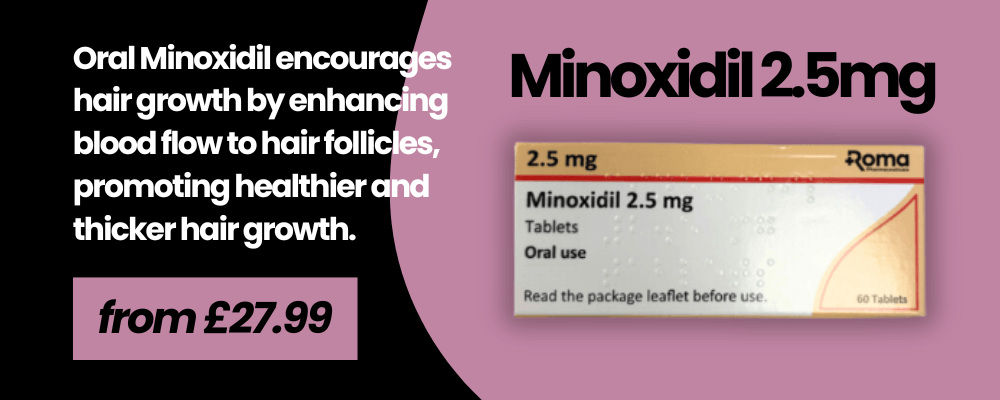The interest in vitamins and minerals, particularly in their role in preventing and managing skin disorders and hair loss, is a topic of widespread inquiry. Addressing these questions is complex due to the vast and sometimes conflicting research available. Recent studies have provided new insights, leading to evidence-based guidelines for addressing skin conditions like atopic dermatitis, psoriasis, acne, and skin cancer, while also underscoring the need for continued research.
The human scalp, with its roughly 100,000 hair follicles, primarily remains in a growth phase where hair loss is not observed. This phase requires key nutrients such as proteins, vitamins, and minerals for the effective production of healthy hair. Micronutrients, including vitamins and minerals, play a vital role in our diet. Historical accounts, like those of Vasco de Gama in 1497 and later observations by James Lind, link vitamin deficiencies to hair loss and other health issues. Malnutrition, particularly protein-energy malnutrition, can lead to noticeable changes in skin and hair health.
Addressing hair loss, a prevalent condition with significant impacts on individuals’ quality of life, is a critical area of dermatology. The three primary types of non-scarring hair loss – Androgenetic alopecia, Telogen effluvium, and Alopecia areata – may be influenced by micronutrient levels. These nutrients are integral to the normal hair follicle cycle, especially in the rapid cellular turnover in the follicle bulb.
This review encapsulates the role of various vitamins and minerals, such as Vitamins A, B, C, D, E, iron, selenium, and zinc, in the context of non-scarring alopecia, highlighting the importance of diet and nutrition in managing hair loss. This dynamic and evolving area of study continues to offer new insights into the treatment and prevention of hair loss.
Understanding hair loss
Hair loss, a common concern affecting millions worldwide, is not just a physical phenomenon but also an emotional one. In the UK alone, it’s estimated that half of the population will experience some form of hair loss by the age of 50. While often linked to ageing or genetics, hair loss can also be a sign of nutritional deficiencies. This blog explores the crucial role vitamins and minerals play in maintaining healthy hair.
What causes hair loss?
Hair loss can stem from various factors, including genetics, hormonal imbalances, medical conditions, and nutritional deficiencies. For instance, conditions like alopecia areata, thyroid disorders, and scalp infections can lead to hair loss. However, it’s increasingly understood that a balanced diet, rich in specific vitamins and minerals, plays a pivotal role in hair health.
Key vitamins and minerals for hair regrowth:
-
Vitamin A
Vitamin A plays a vital role in vision, immune function, and cell growth. Found in two forms, preformed vitamin A from animal products and provitamin A carotenoids from plants, it’s essential for health, including hair health. In the body, these forms convert to active compounds like retinal and retinoic acid, primarily stored in the liver. Plasma retinol and carotenoid levels can indicate vitamin A adequacy, with 0.70 µmol/L being a threshold for adequacy.
A balanced diet typically provides adequate vitamin A, with the recommended daily allowance for adults set at 1300 mcg (4300 IU). However, excessive intake, particularly of preformed vitamin A, can be toxic. The upper safe limit is around 10,000 IU for adults. Overconsumption of vitamin A can lead to hair loss, as the liver regulates its storage and metabolism. When vitamin A levels are too high, it can disrupt the balance of its metabolites, crucial for maintaining healthy hair.
Research has linked excessive vitamin A to hair loss. One study focusing on acne treatment with isotretinoin noted a decrease in hair count and density. In a 1979 case, a woman with elevated vitamin A levels due to supplements experienced hair loss, which resolved upon stopping the supplementation. Another report detailed a 60-year-old man suffering from hair loss and other symptoms due to excessive vitamin A intake.
Understanding the balance and sources of vitamin A is crucial for maintaining optimal health and preventing hair loss. While vitamin A is essential, moderation and adherence to recommended daily limits are key to avoiding its adverse effects on hair health.”
The NHS recommends a daily intake of 700µg for men and 600µg for women.
-
Vitamin B, particularly Biotin
Exploring the world of vitamins and hair health, we find that the B vitamin complex, a group of eight water-soluble vitamins, plays a crucial role in cellular metabolism. These vitamins, including thiamine (B1), riboflavin (B2), niacin (B3), pantothenic acid (B5), vitamin B6, biotin (B7), folate, and vitamin B12, are generally obtained through a balanced diet. Biotin, unique among them, is produced by the body and does not typically require supplementation. Notably, deficiencies in riboflavin, biotin, folate, and vitamin B12 have been linked to hair loss.
Focusing on riboflavin (B2), it’s integral for creating FMN and FAD, two key coenzymes involved in fat metabolism and energy production. While rare in the UK., riboflavin deficiency can lead to hair loss. Biotin (B7), another critical player, aids in the metabolism of fatty acids, glucose, and amino acids and is crucial for gene regulation and cell signaling. Despite the high levels of biotin found in many hair and nail supplements, evidence of its effectiveness in treating hair conditions is limited.
Excessive biotin intake poses risks too, potentially skewing lab test results and causing misdiagnoses in various medical conditions. This interference has been noted in a range of biotin-based immunoassays, impacting the accuracy of several hormone and non-hormonal tests.
Biotin deficiency, while rare, can occur either genetically or through dietary choices, like excessive raw egg consumption. In pregnant women, a deficiency is more common, occurring in about half of the cases. However, the benefits of biotin supplements in treating hair loss, skin rashes, and brittle nails lack substantial scientific backing. Only a few case reports suggest its potential in improving hair health in specific conditions like uncombable hair syndrome.
Studies on serum biotin levels in women with hair shedding have revealed varied results. While some show a connection between biotin deficiency and hair loss, others find no significant correlation. Similarly, research on the role of folate and vitamin B12 in hair health is inconclusive. Though they are essential for DNA synthesis and red blood cell formation, studies have yet to establish a definitive link between these vitamins and hair loss.
In conclusion, while certain B vitamins play roles in maintaining hair health, their effectiveness in preventing or treating hair loss requires more extensive research. This insight highlights the complexity of nutritional impacts on hair health and the need for continued exploration in this field
The daily recommended intake is around 30 to 100 µg.
-
Vitamin C
Vitamin C, also known as ascorbic acid, plays a crucial role in maintaining hair health, especially in combating hair loss related to iron deficiency. This vital, water-soluble vitamin, primarily sourced from glucose metabolism, acts as a powerful antioxidant. It safeguards against the damage caused by oxidation of low-density lipoproteins and free radicals. Additionally, Vitamin C is pivotal in collagen production, aiding the hydroxylation of lysine and proline, which are essential for building collagen fibers.
A significant aspect of Vitamin C’s function is enhancing the absorption of iron in the intestines through its chelating and reducing properties, which is particularly beneficial for individuals experiencing hair loss due to iron scarcity. Humans lack the enzyme L-gulonolactone oxidase, necessary for synthesizing Vitamin C, making dietary intake essential. Foods rich in Vitamin C include citrus fruits, potatoes, tomatoes, green peppers, and cabbages.
Although there’s a recognized association between Vitamin C deficiency and body hair abnormalities, current research does not directly link Vitamin C levels with hair loss. This highlights the need for further investigation into the specific impacts of Vitamin C on hair health and loss
Citrus fruits, strawberries, and bell peppers are rich sources. Adults need 40mg of Vitamin C daily, as suggested by NHS guidelines.
-
Vitamin D
Vitamin D plays a crucial role in hair health. This fat-soluble vitamin, synthesized in skin cells, requires activation through enzymatic processes. Its production is stimulated by UVB rays converting 7-dehydrocholesterol in the skin into cholecalciferol, which is later transformed in the liver and kidney into its active form, 1,25-dihydroxyvitamin D. Beyond its well-known functions in regulating calcium and phosphorus levels, Vitamin D also exhibits anti-inflammatory and immunoregulatory effects. These properties are especially significant considering its involvement in autoimmune disorders, where low Vitamin D levels are often observed.
In the context of hair loss, Vitamin D’s impact is evident. It influences the growth and differentiation of keratinocytes, cells critical for hair formation, by binding to the nuclear vitamin D receptor (VDR). Studies highlight that VDR activity is highest during the anagen phase of hair growth. Disorders like vitamin D-dependent rickets type II, characterized by mutations in the VDR gene, often result in significant hair loss, including alopecia.
Emerging research underscores Vitamin D’s potential role in alopecia areata (AA), an autoimmune condition causing hair loss. Studies, including systematic reviews and meta-analyses, have consistently shown lower Vitamin D levels in individuals with AA compared to healthy controls. This has led to suggestions that Vitamin D supplementation could be beneficial for those with AA and Vitamin D deficiency, although the correlation between Vitamin D levels and the extent of hair loss remains unclear.
Further studies, employing methods like enzyme-linked immunosorbent assay (ELISA), have found a significant inverse correlation between Vitamin D levels and AA severity. However, the relationship between Vitamin D intake and the risk of developing AA has not been conclusively established. Additionally, research indicates reduced VDR expression in AA patients, potentially linking Vitamin D’s role in hair health to its receptor’s functionality.
In summary, Vitamin D’s role in hair health is multifaceted, impacting both hair growth and autoimmune responses related to hair loss. Its significance in conditions like AA points to the need for further exploration of Vitamin D as a potential therapeutic agent in hair loss treatment.
Sun exposure is the best way to boost Vitamin D levels, besides food sources like fatty fish and fortified foods. The NHS recommends 10µg per day.
Ready to start your hair regrowth journey?
In conclusion, the importance of vitamins and minerals in maintaining healthy hair cannot be overstated. Essential nutrients like Vitamin A, B vitamins (particularly Biotin), Vitamin C, Vitamin D, Vitamin E, iron, zinc, and selenium play pivotal roles in hair growth and scalp health. Deficiencies in these nutrients can lead to hair loss or hair thinning. It’s crucial to remember that while supplementing with these vitamins and minerals can help, they are most effective when part of a balanced diet. Always consult a healthcare professional before starting any new supplement regimen, especially if you’re experiencing significant hair loss.
Contact us today
Are you concerned about hair loss and wondering if a lack of essential vitamins and minerals might be the cause? The Family Chemist is here to help. Our team of experts can guide you in understanding the role of these nutrients in hair health and assist in selecting the right supplements for you. Visit our website to explore our range of hair care supplements and to book a consultation with one of our healthcare professionals. Let’s work together to nurture your hair back to health.




